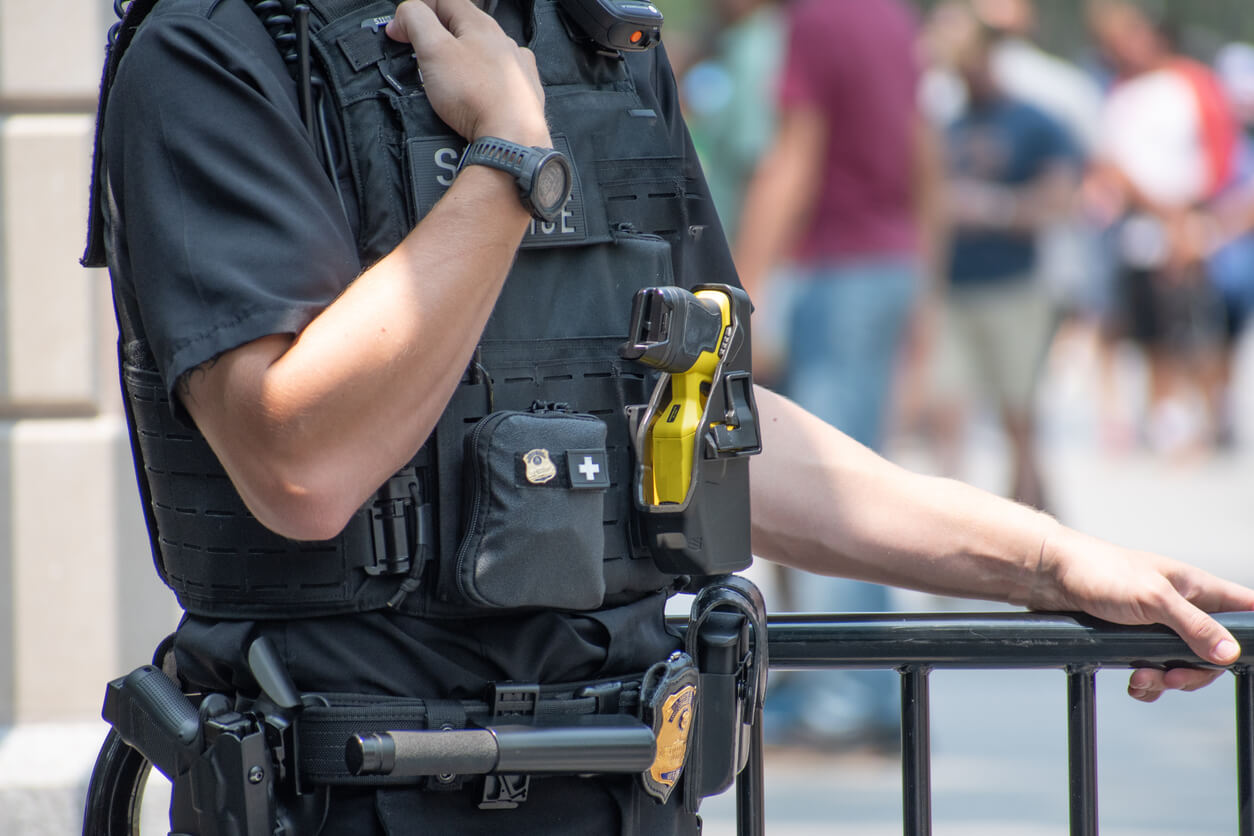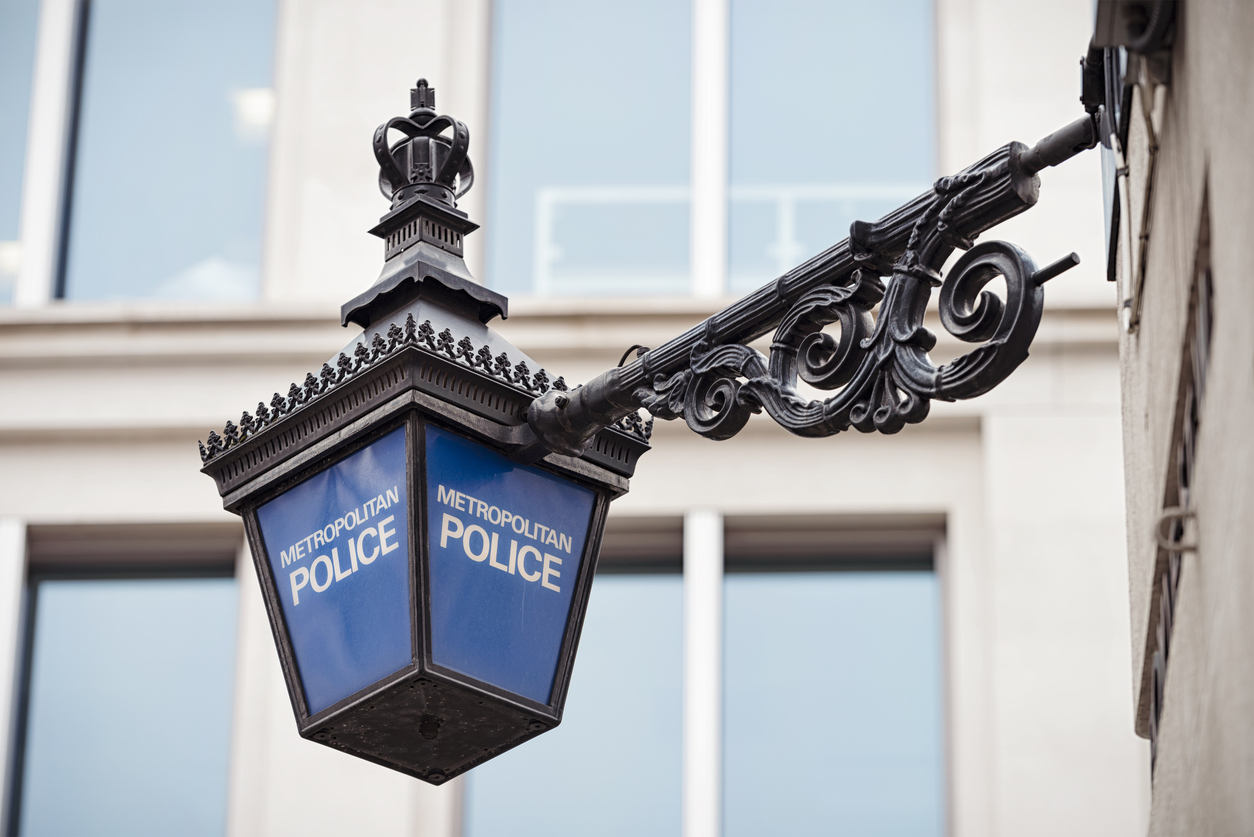What happens when you file a complaint against a police officer?
What happens when you file a complaint against a police officer?
Police officers have an essential role to play in keeping us safe and upholding the law. For this reason, we want to be confident that police officers are going to perform their duties in a responsible and appropriate way. Unfortunately, this is not always the case – as a number of concerning news stories have made clear in the past few years. As a result, public trust in the police is at an historic low.
With this in mind, it’s important to know that you do not have to accept poor treatment on behalf of a police officer. If an officer’s behaviour falls short of what you expect – if they behave in a discriminatory way, for example, or use excessive force – there are steps you can take to seek redress. And one of the most effective steps you can take is to file a complaint against the police officer.
In this post, we’ll discuss in detail how you can make a complaint against a police officer, what the process looks like, and what happens when you file a complaint against a police officer. We’ll also look at how you can seek compensation if you’ve suffered damages as a result of police misconduct.

What is a police complaint?
A police complaint is a formal process through which you can raise issues about police behaviour you found to be inappropriate or which fell short of the standards you would expect. Every police force has a department that is responsible for handling these complaints – this is usually called the professional standards department.
Police forces are required to take all complaints seriously and provide you with a response. As we’ll explain below, in some cases they must conduct a full investigation, and they may even need to refer the complaint to the Independent Office for Police Conduct (IOPC).
There are many different types of inappropriate behaviour that you are entitled to make a complaint about. This includes:
- Discriminatory treatment. Police officers must act in accordance with the Equality Act and not treat you unfavourably based on any protected characteristics. This includes race, sex and age. Unfavourable treatment can extend from using discriminatory language to performing a stop and search based on a protected characteristic.
- Excessive force. Police officers are permitted to use force for specific purposes, including preventing a crime from taking place or effecting a lawful arrest. However, this force must be reasonable, necessary and proportionate. If you think an officer used more force than necessary – or the force wasn’t necessary at all – then you may have experienced excessive force.
- Wrongful arrest. A police officer can make an arrest only if there is an arrest warrant, or they have reasonable suspicion and reasonable belief the arrest is deemed necessary – to prevent a crime taking place, for instance. If you are arrested without these conditions being met, then you have been deprived of your liberty without a lawful reason.
- Unlawful stop and search. Police officers have the power to perform a stop and search if they have reason to believe you are carrying illegal drugs, a weapon, something that can be used to commit a crime, or stolen property. However, an officer cannot lawfully stop and search you based on a vague suspicion or for any discriminatory reason.
- Malicious prosecution. This refers to situations where the police bring charges against you in bad faith. This may have involved police officers fabricating evidence, acting in a biased way, or failing to investigate fully.
These examples of police misconduct can all have a devastating impact on those affected. In each case, making a complaint against the officer or officers responsible is an important step to ensuring they are held accountable.
Let’s look more closely at the process of filing a complaint and how they are dealt with.

How do you make a police complaint?
If you wish to make a complaint about a police officer, you must get in touch with the police force they work for, as they will be responsible for dealing with the complaint.
There are a number of ways you can submit your complaint, including in person or over the phone. However, most police forces have a page on their website that allows you to submit a complaint, and this is usually the most straightforward option. Alternatively, there is a page on the IOPC website that allows you to submit a complaint to any police force.
Using an online form is the best way to ensure you include all relevant information in your complaint. However, if you do want to make your complaint using an alternative method, take a look at our in-depth guide on how to make a complaint against the police for more information.
While there is no time limit for making a complaint, it’s best to do so as soon as possible after the incident. This will make it easier to provide the necessary evidence and ensure your memory of what happened is clear. If you wait longer than 12 months to complain, you may be asked to explain the delay.
What happens after you file a complaint against a police officer?
Once your complaint has been submitted, you should hear from the police force within a few weeks to acknowledge the complaint. They may also ask you to provide some additional information to help them process the complaint. At this stage, you may also be asked what you hope the outcome of your complaint to be – we’ll discuss potential outcomes in the next section.
What happens next will depend on the nature and seriousness of your complaint. If the complaint involves police misconduct, the police force’s professional standards department may have to conduct an investigation to ascertain what happened. If an investigation takes place, you should be notified about its progress at least every 28 days. The police force should also ask you how you would like to receive these updates.
Finally, you will be notified of the outcome of your complaint. This will likely include an investigation report outlining the steps that were taken and any further action that will result from the investigation.
What are the possible outcomes of a police complaint?
There are a range of possible outcomes for your police complaint. As mentioned above, you may be asked which would be your preferred outcome when making a complaint.
If you are making a complaint about the behaviour of a police officer, you may well want the officer to undertake further training or for them to face disciplinary proceedings, and these are both potential outcomes of your complaint. It may also lead to:
- An apology on behalf of the force for your treatment
- The force reviewing its standards and procedures
- An explanation for what took place being provided
- No further action being taken
If you are unhappy with the outcome of your complaint, you do have the right to ask for a review. When notifying you of the outcome, the police force should also explain this right to you and the steps you need to take. You will have 28 days from being notified of the outcome to lodge your request for review.
It’s important to be aware that, regardless of the outcome, you will not receive any compensation as the result of your police complaint. If you have experienced significant damages as a result of what took place – if you were injured, for instance, or were left unable to work for a period of time – you may be dissatisfied with this.
Thankfully, there is a way to secure compensation following an experience of police misconduct. Read on below to find out more.
Can you seek compensation for police misconduct?
As we explained above, filing a complaint against a police officer can lead to a range of outcomes, but this doesn’t include receiving compensation. To seek compensation, you will need to pursue what is known as a civil action against the police. This involves taking the police force responsible to court.
To do this, you will need the support of an experienced solicitor, ideally one with in-depth knowledge of the relevant legislation. They will be able to present your case in the strongest possible way, identifying the ways in which your treatment fell short of the legal standards and the impact this had on you. They will also be able to gather the necessary evidence on behalf, including witness statements and medical records.
While this may seem like a major step, it’s important to consider seeking compensation if police misconduct has impacted your life. Whether you have suffered from physical injuries, emotional distress, financial losses or reputational damage, receiving compensation can be highly beneficial for your recovery.

HNK Solicitors can support your police misconduct claim
If you have been treated improperly by a police officer, making a complaint is an important step. It can help ensure this officer does not repeat this behaviour in future and that the police force they work for takes steps to prevent this. However, if the experience has negatively impacted your life, you should also consider seeking compensation through a civil action against the police.
Here at HNK Solicitors, our highly experienced team of action against the police solicitors has helped many clients to secure the compensation they deserve following misconduct by a police officer. Read our latest case studies to see some of the outcomes we’ve been able to achieve for our clients in recent months.
Our team also offers free consultations to discuss your case and help you understand if you may be entitled to compensation. If you have experienced mistreatment at the hands of a police officer, get in touch today and find out how we can help. Simply call us on 0151 668 0809, or email us at enquiries@hnksolicitors.com to get started.
Recent case studies
3 July 2025
HNK Recover £34,000 in Damages and Costs For Client Against British Transport Police and Avon and Somerset Police












